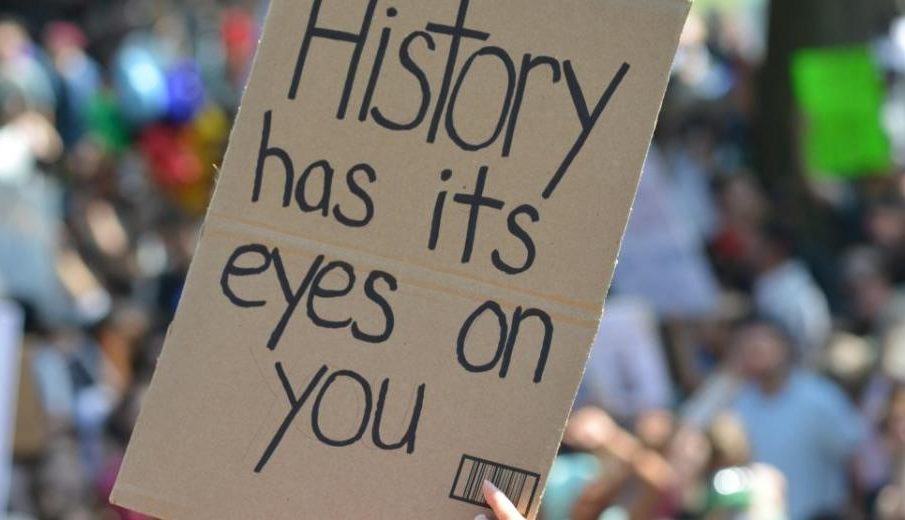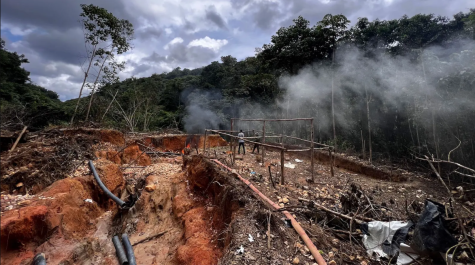
Chloe Cabatuan | Writer
September 26, 2025
Current alarming headlines that cover the environmental, political, and social state of the world right now may make it difficult to comprehend where we stand on a timeline. We study history to learn from mistakes to make progress towards a better future. However, it might feel like we live through repetitions of past crises, going in circles rather than progressing forward. Realizing the causes of these catastrophes will help us recognize the change needed in order to work towards our future instead of trying to fix the mistakes we could have avoided.

The last time our Earth was this warm was 125,000 years ago, during the middle of the last Ice Age. However, these temperatures weren’t caused by global warming like they are today, but instead caused by the Milankovitch cycles, which are variations in Earth’s orbit and orientation that change the amount of solar energy the planet receives, leading to long-term changes in seasonal weather patterns over thousands of years. As a result of this climate change cycling over thousands of years, it gave organisms time to adapt and grow in their changing environment. This is in contrast to our climate now, which is quickly rising because of climate change. Due to this unprecedented rate of increase in temperatures, the environment doesn’t have time to adapt to a world that is changing so drastically in such a short period. Human impacts can include deforestation, burning fossil fuels, agriculture, and transportation. Global warming causes melting ice caps, rising sea levels, warming temperatures, as well as increases in drought, more severe storms, extinction, habitat loss, and wildfires. These are seen in the present day, with Pakistan facing extreme monsoons brought on by global warming. Pakistan produces less than 1% of the total global greenhouse gas emissions, yet the country faces the full force of the human effect of global warming. Climate change is not inherently political, but the world’s main producers of greenhouse gases do not take action to prevent it from happening, making it so.
While the Civil War and present time prove that America’s politics are complex and imperfect, and the conditions of the current day and the state of the world then do not mirror each other, the fundamental points of contention, racial, equality, civil rights, deep political polarization, and federal vs. state power, remain the same. Many see these issues as causing division within the country. Despite the different points of view many hold on the topic, it is important for a society to hold different opinions rather than shame others for believing different things. Kaylee Brown, a junior at SCHS, stressed the importance of freedom of speech in a country because“we need to stand for what we believe in before we are torn apart for our differences.”
In the last hundred years, America and the rest of the world have gone through many years of violence and inequality, with many more years spent fighting against it. In the 1920s, women gained the right to vote due to the 19th amendment. Throughout the Civil Rights Movement in the 1950s to the late 1960s, after much struggle and resistance, the discrimination based on race, color, religion, sex, or national origin was outlawed and voting practices against African-Americans were dismantled. In-between these major events towards social equality, there were two world wars that only represented humans’ capacity for destruction, bringing us further from peace. Today, we live with new and more inclusive social norms, but still fight the same underlying issues as before. “The people are what make this country thrive, but the people are also the ones who have to fight in order to make it what it is today,” said Hazel Marsh, a junior here at SCHS. Her comment is especially important because the United States of America is not great because of its land, but because of the people that make it great.
The current state of our world is uncertain. It’s unpredictable what the future holds, but we need to learn from the past to help shape the future for us and future generations. If we do not learn from the past, we will end up being buried by it.

Leave a Reply